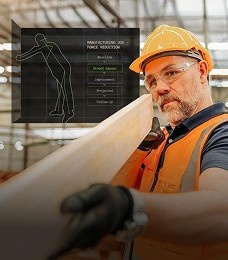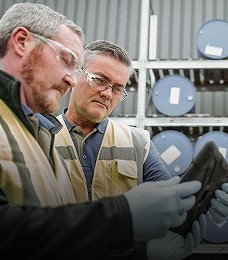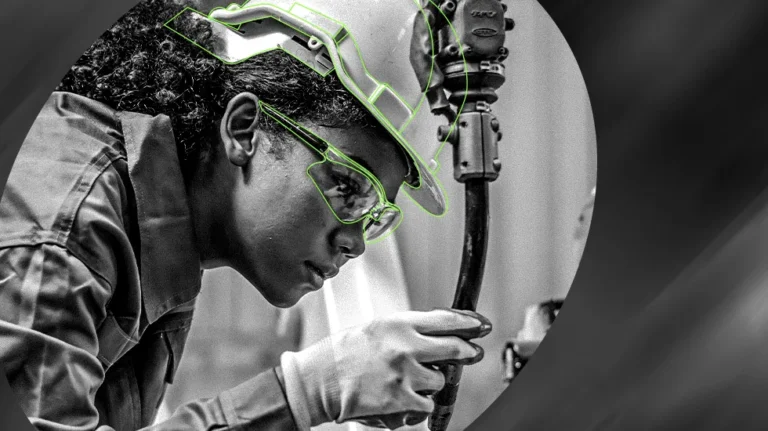The meaning of “workplace safety” has expanded in the last few years. Pandemics aside, many people don’t feel safe at work for reasons that may not be obvious—they fear that being their true selves at work, whether it’s in relation to their sexual orientation or personal identity, will negatively impact their professional persona and relationships.
To have a truly comprehensive safety program, safety managers need to include psychological safety.
Psychological safety means to be able to “show one’s self without fear of negative consequences to self-image, status or career,” and is an important aspect of a comprehensive safety program. In fact, the International Organization for Standardization (ISO) is currently developing a guidance standard, ISO 45003, to give organizations guidance on managing psychosocial risks as part of their occupational health and safety (OHS) management system.
Many people aren’t open about themselves at work because they fear facing judgement or rejection from their colleagues, or being overlooked for new jobs or promotions by management. With the divisiveness that has become embedded in conversations around these issues, and the violence that many people have suffered, it’s understandable why this is a large fear for many LGBTQ+ employees.
- According to a recent LinkedIn survey:
- 24% of surveyed professionals were not open about their identity in the workplace.
- 26% of respondents worried that being open about themselves would cause coworkers to treat them differently.
With a significant number of employees feeling that they’re at risk professionally, it’s imperative that organizations evolve their safety programs to make sure that every employee feels truly safe.
Being able to be one’s self and share their thoughts at work without retaliation is necessary to maintain a strong safety program.
If an employee feels judged by their teammates or leaders, how likely are they to feel confident enough to communicate their safety concerns when they see an issue? When employees don’t feel accepted or respected, they can feel voiceless, keeping their concerns to themselves and letting safety risks slide. Issues that could have been quickly addressed had they been communicated to leadership will continue, contributing to a larger possible incident down the road.
The lack of comfortable communication between team members also shatters the collaborative work environment. Safety programs are stronger when they’re developed directly with employees. If team members can’t communicate openly, they won’t be able to effectively collaborate and determine beneficial improvements. Someone might have added a pivotal positive change to a workplace safety improvement if they had felt like their idea would be accepted and respected.
Whatever concerns employees have, they need to feel that they can talk openly with their teams and leaders. Otherwise, areas of an organization’s safety program could be failing majorly, affecting many more employees.
As time goes on and new voices enter the workforce, this conversation will only get louder.
The openness and acceptance of LGBTQ+ employees is already growing, and there’s hope that by the time the next generation enters the working world, they can step in as exactly who they are.
- According to a recent Gallup poll:
- 6% of Americans identify as LGBTQ, which is up from 4.5% in 2017.
- 1% of millennials identify as LGBTQ; ~50% of whom identify as bisexual.
- ~16% of Gen. Z identify as LGBTQ; 72% of whom identify as bisexual.
- 8% of Gen. Z identify as transgender.
It’s the responsibility of safety managers to make sure that a company’s workplace is safe for the people it employs. It’s been shown that companies who value and develop strong a strong approach to psychological safety experience less employee burnout and retain top talent.
People want to work for a company and with a team that accepts and respect them for who they are and what their perspectives bring to the table. When all employees feel confident in their voice, they’ll use it to strengthen the inclusive and safe culture of the organization they work for.
With the right EHS partner, your safety management system can be intrinsically inclusive.
VelocityEHS is proud to be the exclusive sponsor of National Safety Month and be part of the evolution of workplace safety to include psychological safety. The values that are important for employees to feel psychologically safe, like honesty and inclusion, are embedded into our Safety Management Solution through the software’s user-friendly system and visibility of enterprise-wide, real-time data. Our solution empowers employees to manage their workplace safety by participating in safety inspections and incident investigations. VelocityEHS offers a comprehensive safety solution that accurately monitors your safety data and promotes the psychological safety of your employees.














